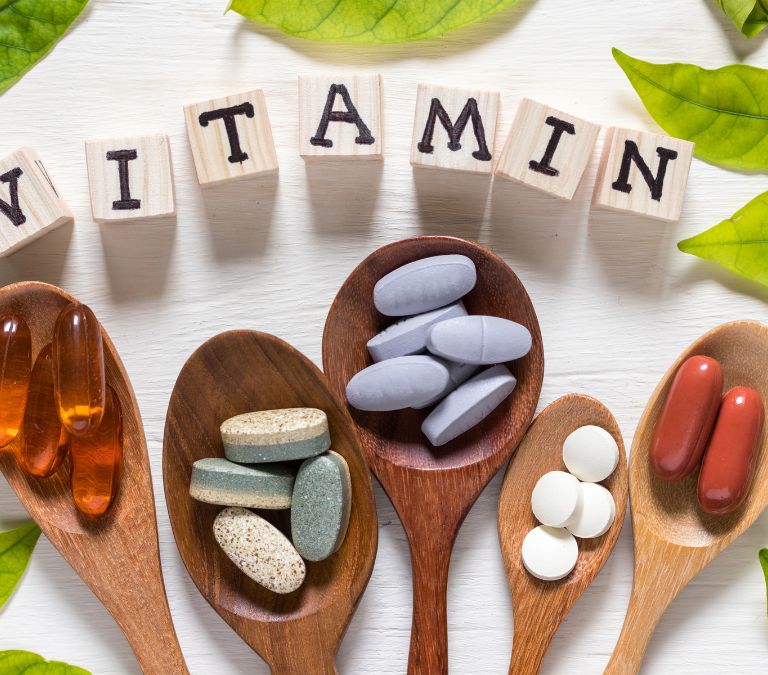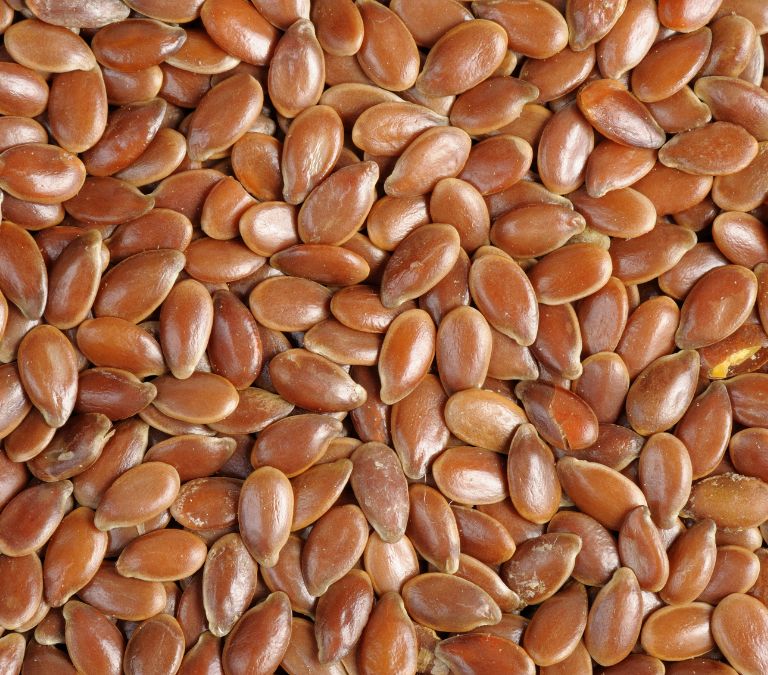Just like other significant changes in the body, menopause comes with its symptoms. While menopause is a compulsory phase for all women, the symptoms are, in most cases, different with varying severity. Generally, symptoms of menopause can come in the form of hot flashes, night sweats, osteoporosis, bloating, incontinence, weight gain, vaginal dryness, cardiovascular diseases, inability to get long sleep hours, fatigue, anxiety, depression, and memory. With more women going into menopause faster/earlier than ever, the need to get lasting solutions to the problems of menopausal problems has never been this amplified.
Menopause Is Not an Illness
Because of the symptoms, many women today see menopause as an illness. During menopause, the ovaries lose the ability to produce eggs and, in most cases, also lose the ability to produce important sex hormones like estrogen, progesterone, and testosterone. With the inability of the hormones to produce these hormones, hormonal fluctuations become imminent, and the body becomes vulnerable to a rollercoaster of complications. Fluctuations in hormones cause most of the symptoms experienced during menopause.
These symptoms do not just affect women physically; they also affect them emotionally and psychologically. Worldwide, many women have had their psychological health depreciated by menopausal symptoms. For example, menopausal women are more vulnerable to weight gain. Weight gain can lead to cardiovascular diseases and other severe health risks. When a woman who isn’t prepared to deal with complications like these begins to see them coming, she could be overwhelmed and may break both emotionally and mentally.
Dealing with Menopausal Symptoms

Today, there are several treatments and management options for menopausal symptoms. Since different women react differently to menopause, some treatments available today have been studied to have varying effectiveness in different women. With innovations happening every day in medicine, treatments like hormone replacement therapy have gained popularity among menopausal women.
Hormone therapy is a treatment that involves directly taking artificial hormones into the body to balance or regulate hormonal fluctuations during perimenopause. By balancing these hormones, the body may return to normal, eradicating symptoms.
While hormone therapy remains the most effective treatment and management option for the symptoms of menopause, it isn’t the safest, and this has made many women today sought for alternatives. Lifestyle and diet options have been highly recommended to help reduce the severity of menopausal symptoms and ensure a smooth transition into postmenopause. While lifestyle and diet options aren’t as effective and quick as hormone therapy, they remain the safest options with the help of a qualified medical practitioner.
With more research on menopause, certain nutrients and vitamins have been proven to positively affect menopausal women.
Vitamins and Supplements: How Effective Are They?
Vitamins and supplements are great for developing and maintaining good health. Studies have shown that vitamins and supplements possess some healing powers that can aid good health in both men and women. Moreover, other studies have shown that vitamins can be very useful for menopausal women looking to reduce the severity of symptoms during menopause or, better still, eradicate them.
Here are some vitamins and how they may help menopausal women go through a smooth transition into postmenopause.
B Vitamins

B vitamins are very important to menopausal women. Generally, B vitamins are known for their role in ensuring the enzymes and cellular components in the body do their job without complications. B vitamins help in the transportation of nutrients in the body as well as ensuring the brain functions normally.
In menopausal women, B vitamins are important for a smooth transition into menopause. During menopause, your risks of developing problems like cardiovascular diseases, stroke, and even dementia increase. However, studies have shown that regular B vitamins can help prevent these diseases.
Studies have shown that deficiency of B vitamins during menopause could make you thrice more likely to experience many severe complications associated with menopause. Of all the vitamins, B vitamins are the vastest and, as such, have more advantages, especially for menopausal women. Here are some forms of B vitamins and their importance to menopausal women:
Vitamin B-12
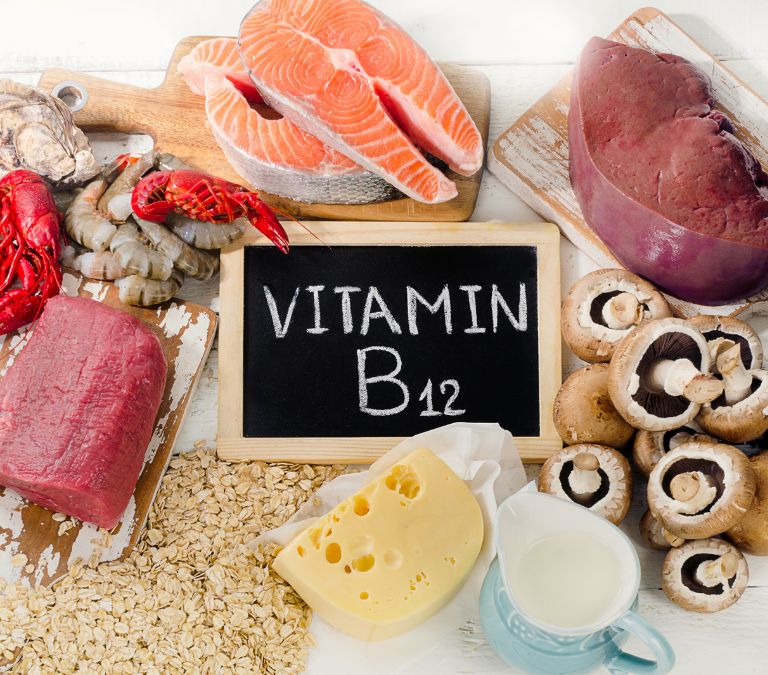
This water-soluble vitamin is necessary for ensuring proper cognitive function, optimal formation of red blood cells, and timely synthesis of DNA and nerve cells throughout life. Since the body cannot create vitamin B-12, adequate consumption of food and supplements rich in vitamin B-12 is important, especially during menopause. During menopause, there is an increased risk of cognitive function impairment, frequent fatigue, and osteoporosis, but with adequate consumption of vitamin B-12, one can prevent them.
Vitamin B-12 can help develop healthy brains, strong bones and teeth, and optimal cell formation. Deficiency of vitamin B-12 will lead to problems like anemia, weakness, difficulty walking, low bone mineral density, osteoporosis, confusion, balance problems, dementia, depression, constipation, loss of appetite, and numbness in the limbs. Foods rich in vitamin B-12 include dairy products, meat, eggs, and other poultry products. While meat remains the major vitamin B-12, vegans are advised to eat more cereals and nutritional yeast to get enough vitamin B-12.
Common vitamin B-12 supplements include cyanocobalamin and methylcobalamin. Overdose of vitamin B-12 could cause problems like diarrhea and bloat. Menopausal women already living with cardiovascular diseases may experience increased severity of their problems when they take too much B-12. The Dietary Reference Intake of Vitamin B-12 in women is 2.4 micrograms daily. Before taking B-12 supplements, it is important to see a doctor first to get firsthand information concerning this important nutrient.
Vitamin B-6
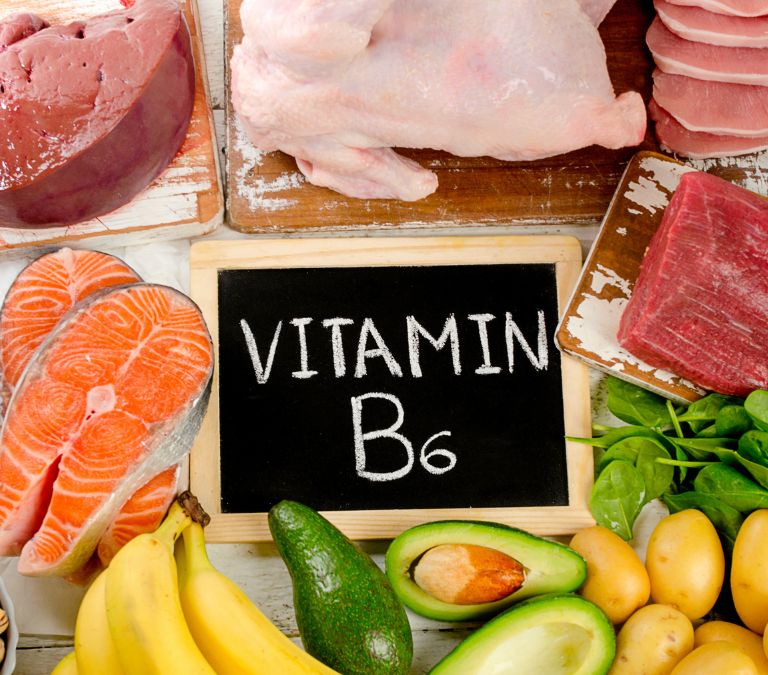
B-6 is a water-soluble vitamin that the body of animals cannot produce. For this reason, we get all of our B-6 from foods and supplements. Menopausal symptoms can come from psychological and emotional complications like depression, moodiness, irritability, anxiety, and rage. As you go into menopause, your B-6 levels reduce, and mental and emotional menopausal symptoms are amplified.
Vitamin B-6 can help perimenopausal women manage weight effectively, which is important in aiding healthy metabolism. The characteristic importance of vitamin B-6 in menopausal women is its effects on averting mood swings and irritability. The dopamine and serotonin hormones often trigger calmness in the body.
These hormones are neurotransmitters and can help the brain respond calmly to periods of stress and maintain a positive attitude even during brief periods of overwhelming mental pressure. When vitamin B-6 and hormonal levels drop during menopause, mood swings and irritability are almost imminent. However, B-6 supplementation can help avert or cushion these problems because B-6 facilitates the production of dopamine, estrogen, and serotonin, hormones known to promote calmness and positive mood.
The Dietary Reference Intake for vitamin B-6 in women is 100 milligrams daily. Studies have proven that adequate supplementation of vitamin B-6 during menopause can prevent problems caused by low serotonin and dopamine levels. Foods rich in vitamin B-6 include bananas, avocados, spinach, eggs, beef, dairy and poultry products, pork, fish, and potatoes. Before getting B-6 supplements, it is important to talk to a doctor first, as a B-6 overdose can lead to problems like nausea, heartburn, painful skin lesions, lack of muscle coordination, and mild numbness.
Vitamin D
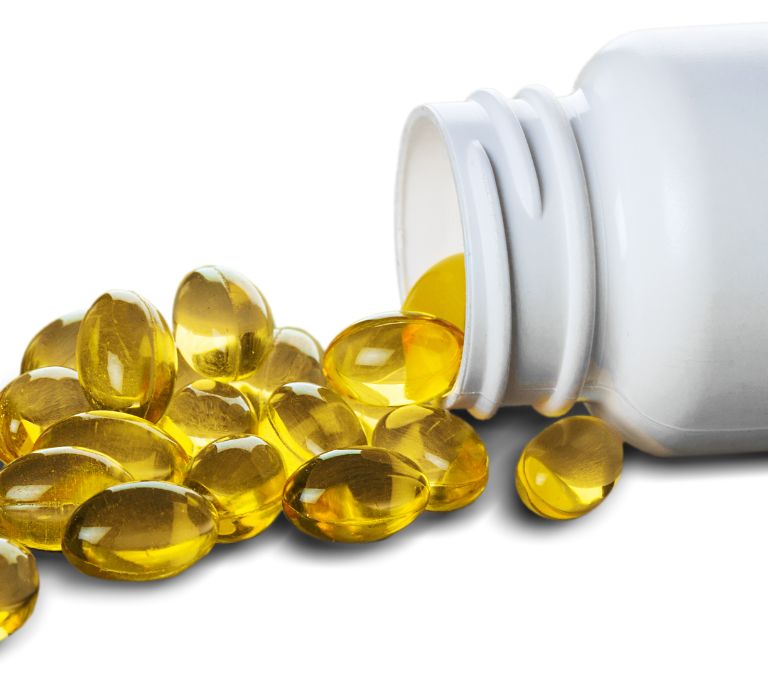
Just by sunlight exposure, the body can produce most of its vitamin D. However, its ability to produce vitamin D from sunlight declines with age. It means that the ability of a menopausal woman to produce vitamin D won’t be the same as a woman in her 30s or 40s. For this reason, vitamin D supplementation from food is important. In many cases, women use sunscreens and other sun-blocking products to prevent the utmost utilization of sunlight. With this, the body does not make good use of the sunlight to make vitamin D.
Foods rich in vitamin D include egg yolks, oily fish, dairy products, and orange juice. Vitamin D helps develop and maintain healthy bones, which helps prevent or manage osteoporosis. Menopausal women are more at risk of developing osteoporosis, a condition that occurs when the bone density reduces, resulting in the brittleness of the bones.
Characteristically, osteoporosis in menopausal women is caused by fluctuations in hormonal levels. According to the National Center for Biotechnology Information (NCBI), more than 20 percent of menopausal women in the United States experience varying severity of osteoporosis. Menopausal women are advised to embrace vitamin D supplementation to avoid a decrease in bone density.
According to the United States Office on Women’s Health, the recommended intake size of vitamin D is 600 UI from perimenopause to 70 and up to 800 IU daily for women in their 70s. Before taking vitamin D supplements, menopausal women are advised to consult a doctor as an overdose of vitamin D can lead to Hypercalcemia which is the development of calcium in the blood. Hypercalcemia can cause further problems like weakness, incontinence, nausea, and vomiting. In the long run, vitamin D overdose could cause chronic bone pain and problems and the development of calcium stones in the kidneys.
Vitamin D deficiency can make a woman more vulnerable to cardiovascular diseases. Other than the role of vitamin D specifically for relieving menopausal symptoms, vitamin D can also help in the regulation of inflammation and the enhancement of immune function.
Vitamin E
Research by PubMed has shown that consuming vitamin E fortified foods and supplements treats hot flashes in menopausal women. Hot flashes are the most common menopausal symptom as more than 70 percent of menopausal women experience it. Hot flashes can be painful and discomforting and, when not handled effectively, may cause sleep problems, leading to anxiety and depression. Vitamin E is a proven treatment for menopausal vasomotor symptoms like hot flashes and night sweats.
Vitamin E can also help with problems like urinary incontinence and sleep disruption. Before periods stop completely and menopause steps in, the body may still be able to make small amounts of estrogen. With the help of vitamin E, estrogen stabilization is enhanced.
The hormone-balancing effect of vitamin E makes it one of the most important vitamins for menopausal women, owing that hormone fluctuations cause most symptoms experienced during menopause. Menopausal women who take in more vitamin E from foods and supplements tend to report fewer symptoms like hot flashes, mood swings, memory loss, and sleep disruption.
Vitamin E also serves as an antioxidant. It means that it can help to withstand the actions of free radicals in the body. This way, there is reduced inflammation, and the blood vessels work better, leading to few vasomotor symptoms. Also, vitamin E has been studied to help ease stress during menopause.
Menopausal symptoms like anxiety and panic attacks are sometimes caused by the body’s inability to handle stress effectively. As a remedy, vitamin E supplementation can help ease these symptoms by creating strategies to repel inflammation and oxidative stress.
Vaginal dryness, another menopausal symptom, can also be relieved through vitamin E supplementation. Vaginal dryness can make intercourse painful and discomforting. To help with this, vitamin E can help balance estrogen levels which can help in the restoration of lubrication in the vaginal walls. Vitamin E families are very important nutrients capable of helping menopausal women go through a smooth transition into menopause.
Just like in the case of vitamin C, an overdose of vitamin E is rare and will not cause severe reactions. However, one can experience mild cases of fatigue, muscle weakness, and nausea from an overdose. Women’s recommended dietary allowance for vitamin E supplementation is 15 mg daily. Foods rich in vitamin E include avocado, almond, peanuts, bell peppers, eggs, carrots, tomatoes, kale, and fish.
Vitamin A
Vitamin A is an essential nutrient for humans. As an antioxidant, vitamin A is excellent for maintaining the immune system’s functionality. While Vitamin A has not been proven to have any direct links to helping with menopausal problems, its effect on general health can be very useful for menopausal women who wish to go hitch-free transitions into menopause.
During menopause, the body becomes more vulnerable to developing osteoporosis from weakening the bones. Studies have shown some positive effects of vitamin A on bone health. However, further studies on the effect of vitamin A on the bone health of menopausal women have been quite controversial. Some menopausal women who have taken vitamin A supplements have shown signs of hip fracture, especially during postmenopause.
While the effects of vitamin A on the bone health of menopausal women remain widely questioned, other studies have shown that vitamin A from beta-carotene doesn’t increase the risk of developing any form of bone fracture. After a series of studies, it was observed that vitamin A obtained from beta-carotene could reduce the risk of women developing osteoporosis and other problems related to bone health.
Vitamin A derived from beta-carotene can be found in yellow and orange fruits and vegetables like carrots, papaya, and tangerine. It is more advisable to take fruits and vegetables rich in vitamin A than to take vitamin A supplements. Many cases of vitamin A supplementation lead to overdose, which can cause adverse effects.
In the United States, vitamin A deficiency is not very common, and when it overdoses, it could lead to complications like hair loss, cracked lips, dry skin, headaches, and rashes. Vitamin A overdose could also lead to problems like muscle aches, nausea, and dizziness. In very rare cases, an overdose could lead to death. Before taking vitamin A supplements, you must speak to a doctor and get clarity on everything you need to know.
Vitamin C
Vitamin C is a water-soluble vitamin that the body cannot produce. Also known as ascorbic acid, vitamin C helps grow and maintain body tissues. Vitamin C has various benefits, from proper immune system functioning to collagen formation and maintaining strong bones and teeth.
In an article released by PubMed Central, menopausal women who took adequate levels of vitamin C were less likely to develop low bone density. These women had relatively higher bone densities compared to women who weren’t high consumers of vitamin C.
Since vitamin C is an antioxidant, it may effectively prevent diseases provoked or caused by the body’s exposure to oxidative stress, like certain cardiovascular diseases. Vitamin C has been suggested as a remedy for hot flashes by enhancing the utmost functionality of adrenal glands in the production of stress hormones. Since more severe cases of hot flashes are experienced during stressful situations, the production of stress hormones can help the body prevent hot flashes during stressful situations.
Vitamin C can also help produce collagen elastin, two proteins important for improving skin health. Without vitamin C, it is practically impossible for new collagen to be produced by cells. For this reason, vitamin C is very important. During menopause, skin dryness and sagging skin are common. However, adequate supplementation of vitamin C may help maintain healthy, attractive skin. With vitamin C supplementation, wrinkles and fine lines are reduced.
Vitamin C deficiency can cause poor wound healing, loss of teeth and bones, irritability, anorexia, weakness, weight loss, and vague myalgias. The recommended dietary allowance for vitamin C in women is 75 mg. Overdose of vitamin C is uncommon but, in some rare cases, could cause problems like nausea, diarrhea, and vomiting. Foods rich in vitamin C include broccoli, papaya, oranges, tomatoes, mango, potato, leafy greens, and berries.
Common Supplements for Menopausal Symptoms
While vitamin supplementation is quite effective for treating menopausal symptoms, some other nutrients are still important for menopausal women to help with several menopausal symptoms. Some proven supplements for menopausal symptoms include:
Black Cohosh
This supplement is gotten from the root of the black cohosh plant and has been suggested to help with hot flashes and night sweats. Black cohosh may also help vaginal dryness, sleep disturbances, and irritability. While black cohosh hasn’t been scientifically proven to help with menopausal symptoms, many women today have seen positive differences in menopausal symptoms by taking black cohosh supplements. However, it is important to know that black cohosh isn’t a herbal supplement and, as such, shouldn’t be regarded as an estrogen substitute when hormonal levels go down.
The use of black cohosh supplements should be prescribed by a doctor as, in some cases, black cohosh has reduced the effects of estrogen in some parts of the body. Dosage for black cohosh supplementation varies and, as such, should be discussed with a doctor or a qualified medical practitioner.
Red Clover
Studies on the effects of red clover supplements on menopausal symptoms are still limited. However, the isoflavone content of red clover has been linked as a likely remedy for various menopausal symptoms. Due to the estrogen-like effects of isoflavones, red clover is suggested as a likely treatment option for menopausal symptoms like hot flashes and night sweats.
Studies have also suggested that isoflavone extracts from red clover may help menopausal women with osteoporosis. This claim is, however, not scientifically backed as only a little research has been carried out.
There are no serious side effects linked to the use of red clover supplements. However, it is strongly advised to meet with a medical practitioner and follow an authorized prescription before taking red clover extracts or supplements.
Flaxseeds are obtained from plants and are predominantly made of fiber, proteins, and fatty acids. Many menopausal women have adopted flaxseed supplements to help them deal with several menopausal symptoms. Due to the high fiber content of flaxseeds, flaxseeds have been studied to help menopausal women with the problem of weight gain by regulating blood sugar and appetite.
Some research has compared the effectiveness of flaxseeds to that of hormone therapy. Other studies have disputed this claim. At normal doses, flaxseed is considered safe. However, an overdose could lead to conditions like diarrhea and bloating. Conditions like bowel obstruction, stiffness, and convulsions have also been seen in women who take flax seeds without drinking enough water. Due to the side effects, a doctor’s guide is important.
Wild Yam
Wild yam is a plant many people see as a potential remedy for conditions like menopausal symptoms and diabetes. Studies have shown that women who take wild yam or its supplement are less likely to develop severe menopause symptoms. It is because wild yam contains a significant account of diosgenin, a chemical that has been shown to facilitate the production of hormones like estrogen in the body.
By consuming wild yams, menopausal women are adopting a natural way to produce new hormones in the body. Because declining hormones cause most menopausal symptoms, wild yam can help reduce the severity of menopausal symptoms by blanching hormonal levels. However, it is important to know that the FDA hasn’t approved using wild yam as a natural remedy for any health condition.
In the US, consumption of wild yam is uncommon owing to its bitter taste. However, wild yam is available in capsules, tablets, powder, cream, tea, and tincture. Wild yam supplements are sold in pharmaceutical and health stores worldwide. Symptoms like nausea and headaches have been associated with the use of wild yam.
Conclusion
While the body becomes vulnerable to several diseases during menopause, scientists work round-the-clock to ensure effective treatment options are available. With this, menopausal women suffering from menopausal symptoms are advised to take advantage of these treatment options while adhering to a doctor’s prescription.

